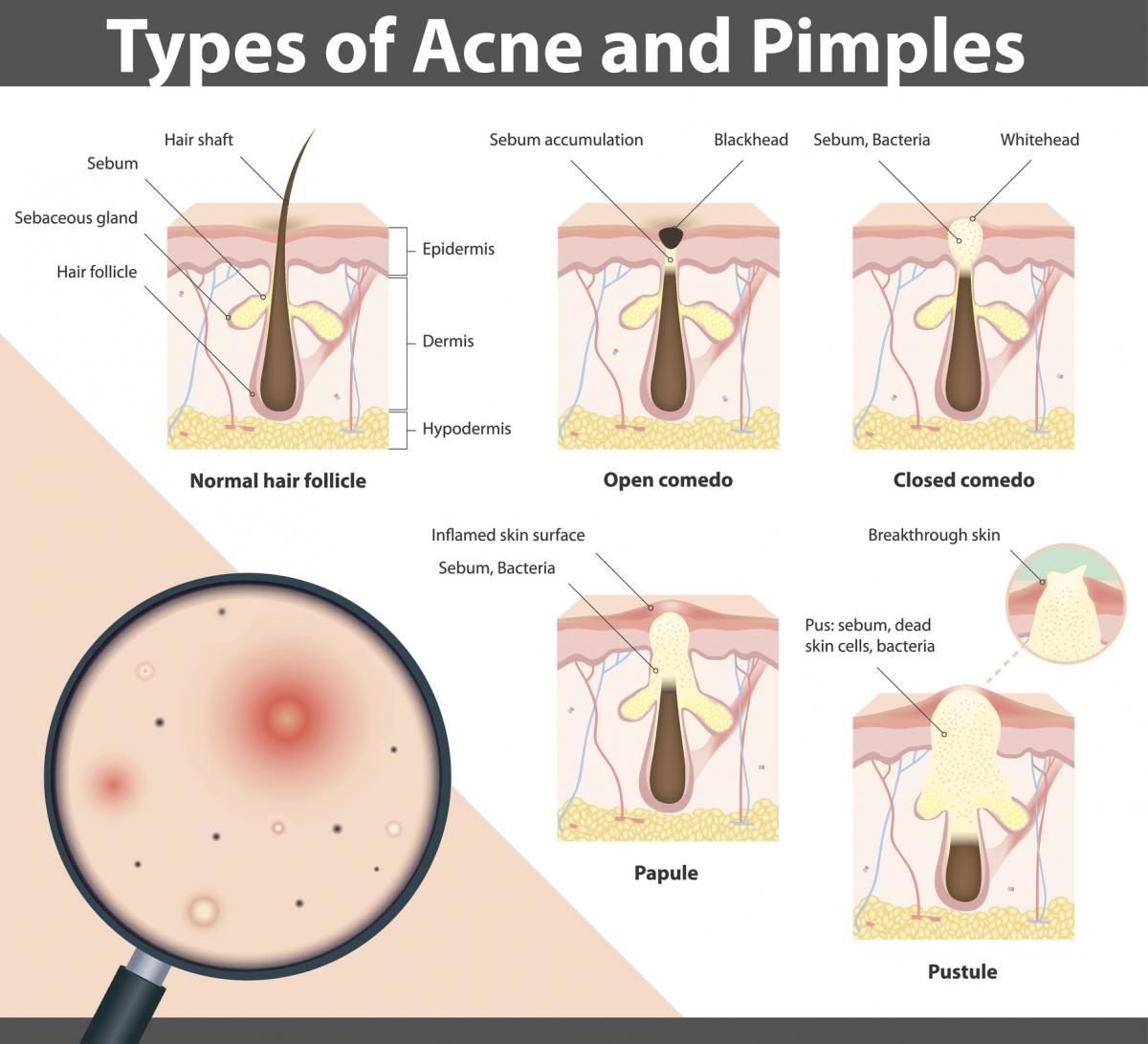Pimples are such common occurrence to everyone that it really is just another fact of life. And honestly, when we have a few of those lucky friends that don’t get to experience this unnecessary right of passage, we tend to hate them for it. So instead of accepting pimples for the monsters that they are let’s educate ourselves on how they come to life and why we they chose us to exist on our skin. Maybe then we can better avoid having them in the future or know how to manage them a little bit better.
What are the different types?
Acne Vulgaris is the most common. It affects an estimated 9.4% of the population worldwide, mostly postpubescent teens especially boys. Having acne can also be a lifelong battle to some.
There are different types of acne; whiteheads, blackheads, pustule, papules, and nodules.
Whiteheads (comedones): acne that is not inflamed. Whiteheads form when there is a combination of oil , skin cells, and bacteria get trapped in the glands but it is not red nor inflamed around the area.
Blackheads (comedones): acne that is also not inflamed. However, blackheads are pretty much open whiteheads meaning, the sebum or oil is exposed and oxidized which gives them a dark appearance.
Pustules: acne that is inflamed and has pus.
Papules and Nodules: acne that is inflamed in a deeper lesion and can involve more than one hair follicle.
Cysts: large nodules.
How do they form?
Our skin is covered in pores. They are tiny wells that are on our hair follicles. Pores are connected to the skin and under the skin there are sebaceous gland that produces sebum. Sometimes, our sebaceous glad produces more sebum than needed. That in turn, causes oil to clog our pores and the dead skin cells that are supposed to be carried to the top by the sebum also get stuck and clogged in the pores. The clogging can attract bacteria to form around the hair follicles that can cause infection, inflammation, and redness, which then form pimples.
What can we do to prevent or control pimples?
Proper hygiene and a healthy lifestyle are great tools for keeping acne under control. However, diet alone and excellent hygiene can’t prevent breakouts from happening. If you’re starting to feel like nothing works for your acne schedule an appointment with a dermatologist. They can help you assess your symptoms and how you can manage your breakouts.

